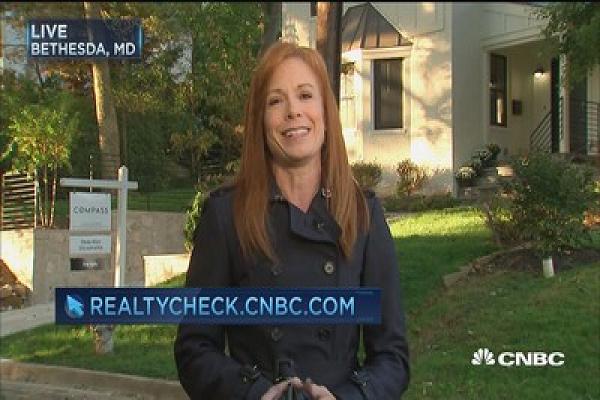
A recent Hilton commercial that shows people tapping away on their phones and computers as the Rolling Stones song “(I Can’t Get No) Satisfaction” plays seems relatively benign, as does the tagline, “Stop Clicking Around.”
But it is one more — very expensive — salvo in the long-simmering tension between hotel chains and online travel agencies like Expedia, as each try to grab their share of customers.
The marketing campaign, developed by Fold7, which is based in London, is the largest such initiative in Hilton’s 97-year history. It premiered during the Grammy Awards broadcast last month and is appearing online, during major television broadcasts, on billboards and in many magazines and newspapers.
The symbiotic relationship between hotel chains and online travel agencies has been under increasing strain for some time. While online travel agencies offer consumers a wide array of options and bring customers to hotels, they do not develop the holy grail of customer relations: brand loyalty.
According to Phocuswright, a travel market research company, 34 percent of people in the United States used online agencies for their travel needs last year, and 66 percent booked directly, slightly up from 2013.
Last year, the Marriott chain, which includes the Ritz-Carlton, ran its own campaign, “It pays to book direct,” that featured the YouTube personality Grace Helbig and offered perks such as free Wi-Fi to Marriott loyalty customers who booked directly through the hotel, rather than through a third party. Next month, Marriott will add more benefits, including exclusive member rates and the ability to use its mobile app to check in and out.
Hilton is also offering similar deals to members who book directly.
“I think what Hilton is doing is quite creative and has the potential to be very, very successful,” said Henry Harteveldt, founder of Atmosphere Research Group, a travel industry research company. “It’s all about building trust in the Hilton website, and the most effective way is to go after the online travel agencies.”
Some online, and even off-line, travel agencies are not very happy with Hilton’s public move.
Cyril Ranque, president of Lodging Partner Services for the Expedia Group, called the hotels’ campaigns, “an ill-conceived strategy in the long term.” Expedia Inc. owns, among others, Hotels.com, Hotwire.com, Trivago.com and Travelocity.com.
Mr. Ranque said that most consumers who were shopping on Expedia and similar sites were “brand agnostic,” meaning they do not really care where they book as long as the hotel meets their needs.
“We have an algorithm that puts forward the most attractive and appealing choice for consumers,” he said. “If hotels are consistently not offering the most attractive prices to consumers, our algorithm would push other hotels ahead.”
Mr. Ranque also said that the hotels would lose customers who would have been directed to the hotels’ websites by a third party.
“We’re trying to make them understand it’s a bad approach,” he said of Hilton.
Geraldine Calpin, Hilton’s global head of marketing, says the campaign’s goal is to make consumers aware of the goodies available to loyalty customers who book directly — including lower rates and room selection — and to clear up misunderstandings that crop up with third-party bookers.
“If you book direct, it gets rid of the confusion,” Ms. Calpin said. “This is where you can get the best price and the best value.”
The tension between online travel agencies and hotel chains — and airlines as well — has been growing over the last few years.
One factor is simple economics. Hotels pay commissions if a third party books the reservation. This commission is 15 to 20 percent for each booking, said Cindy Estis Green, chief executive of Kalibri Labs, which provides research to the hotel industry about revenue performance.
Another factor is the increasing concern about consumer confusion — that is, customers thinking they are booking directly with a hotel and finding out later that they used a third-party site. Sometimes consumers think they are booking reservations that can be canceled without charge, only to find out later that is not the case — or they arrive at a hotel to discover that they do not actually have reservations.
The Federal Trade Commission “has gotten very interested in this,” Ms. Estis Green said. Some consumers are not just perplexed about whether they are booking directly or through a third party, she says, but also who really offered the lowest prices.
The fact is, most hotels and online travel agencies have “rate parity” agreements that neither can undercut the other’s price and that hotels must give the best prices to all the online agencies and not favor one over another.
Rate parity has come under deepening scrutiny; in 2014, about 30 lawsuits were filed in various states against major hotel chains and online-booking groups saying rate parity violated antitrust laws.
The lawsuits were consolidated and eventually dismissed because the plaintiffs were unable to prove that there was an actual conspiracy between hotels and online travel agencies to set prices, said Ilse Scott, a lawyer who specializes in hospitality law with the firm Michelman & Robinson.
There are exceptions to rate parity. One is offering “private” rates to select groups of consumers, such as those who are part of a loyalty program.
Whether the book-direct campaign will shift customers — especially millennials, who are used to comparing many different options on one site — remains to be seen. Marriott declined to comment on what impact, if any, its direct-booking campaign has had so far.
The “book direct” movement is not limited to the United States. The European umbrella organization for hotels, restaurants and cafes called Hotrec began a similar campaign last year.
“More brands will follow the direction of Hilton and Marriott,” Mr. Harteveldt said, “but the challenge is if everyone does it, will it really help the brands?”
[SOURCE :-nytimes]



